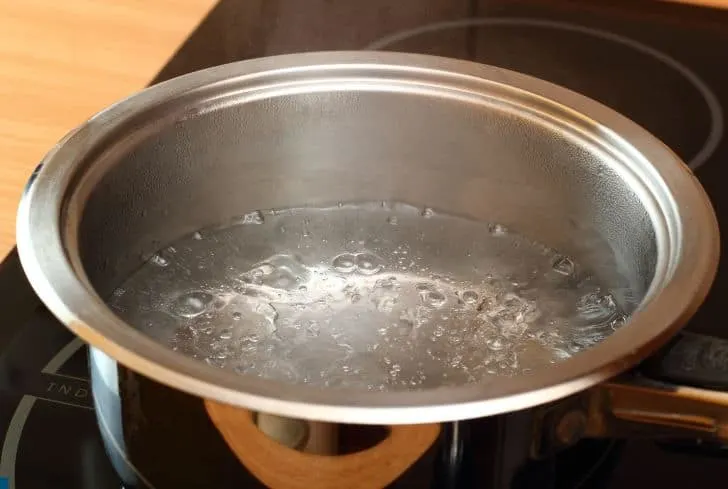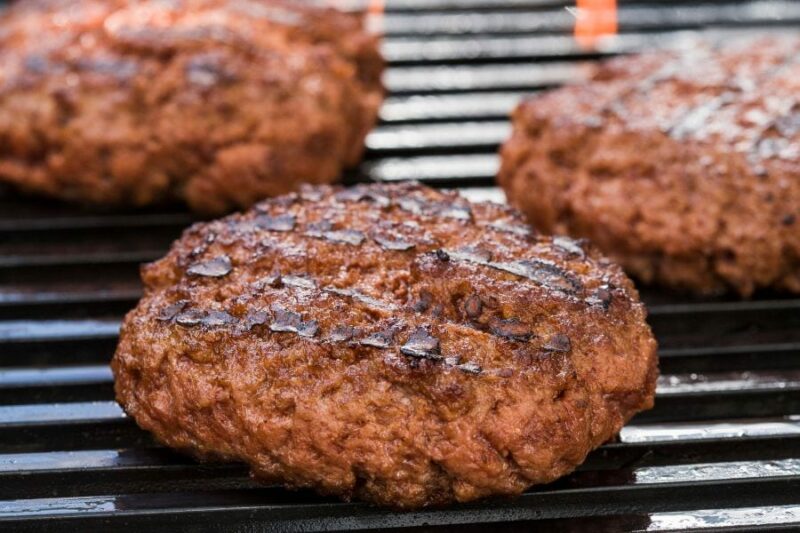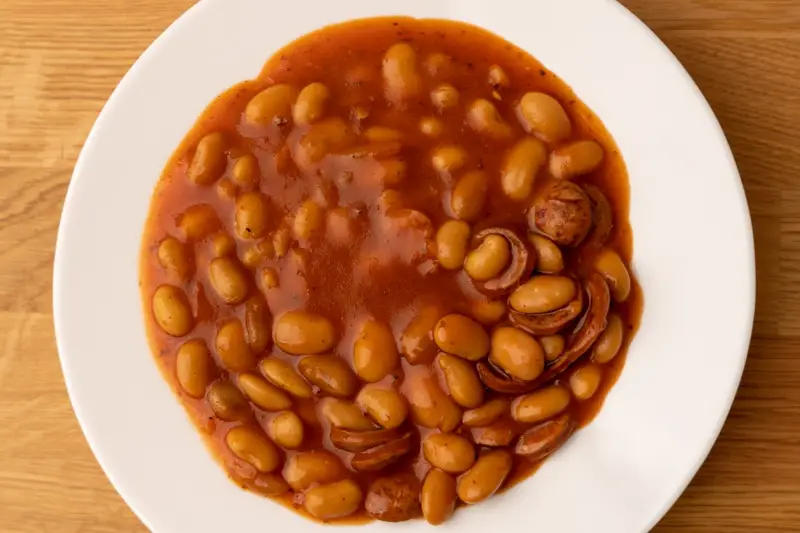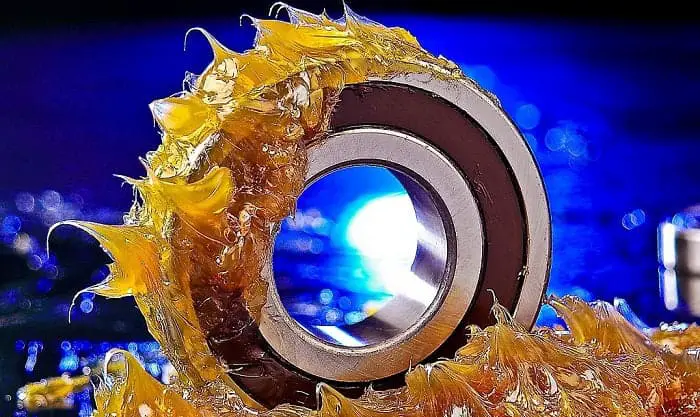Is it Safe to Boil Water in Aluminum? A Science-Backed Analysis
Boiling water is an age-old practice that has been used for centuries as a way to make water safe for drinking. However, with the growing concern over plastic pollution and its impact on the environment, people are now looking for eco-friendly alternatives. One such alternative is boiling water in aluminum pots. But many people are worried about the safety of this approach due to potential leaching of aluminum into the water. In this article, we’ll examine whether it’s safe to boil water in aluminum pots and the science behind it.
Introduction
Boiling is the process of heating a liquid until it reaches its boiling point, at which point it turns into a gas or vapor. People boil water for various reasons – cooking, cleaning, and most importantly to make it safe for drinking by killing off potentially harmful bacteria or viruses present in it.
This article aims to examine whether boiling water in aluminum pots is safe or not and explain the science behind it. When we talk about something being “safe,” we mean that there are no risks associated with its usage (or minimal risk). On the other hand, something “unsafe” may pose significant risk to our health and well-being.
The Properties of Aluminum
Aluminum is a lightweight metal with a silvery-white appearance and low density. It is non-magnetic and corrosion-resistant, making it popular in various industries such as aerospace, construction, and transportation. Aluminum is highly ductile and malleable – properties that help manufacturers create a wide range of shapes and designs from it.
Chemically, aluminum is reactive and forms stable compounds with oxygen that protect the metal surface from further oxidative damage. Aluminum’s reactivity also makes it possible for it to bond with other metals, leading to the creation of alloys such as aluminum-steel and aluminum-copper.
Uses of Aluminum
- Manufacturing airplanes and aircraft.
- Manufacturing vehicles – cars, trucks, etc.
- Construction – windows, doors, facades, roofs.
- Food packaging industries – for cans, foil wraps, containers.
Health Risks Associated with Aluminum Exposure
Metal toxicity is a growing concern in today’s modern world. With various metals finding their way into food and water sources, it’s crucial to understand the health risks associated with such exposure. In this section, we’ll focus on the health risks of aluminum, how it can leach in food or water and the long-term effects of its exposure.
What is Aluminum Poisoning?
Aluminum is a neurotoxin that can accumulate in the body over time leading to various neurological diseases such as Alzheimer’s and Parkinson’s. This accumulation happens when the body has difficulty processing and eliminating heavy metals from its system. The symptoms of aluminum poisoning depend on the level of exposure and can be mild to severe. Mild symptoms include headache, nausea/vomiting while severe symptoms include seizures, tremors, and coma.
How Does Aluminum Leach into Food or Water?
The process by which aluminum enters food or water is called leaching. Leaching occurs when acidic liquids react with aluminum cookware that ultimately leads to degradation of the metal surface resulting in some metal particles in your food or drink. Research shows that high acid foods that come into contact with aluminum cookware have around six times more aluminum compared to low acid drinks or foods that are safe.
Effects of Long-Term Exposure to Aluminum Poisoning
Long-term exposure to aluminum poisoning can lead to various neurological issues, including bone disorders, anaemia, and cognitive impairment. It is essential to emphasize that the health risk of using aluminum pots can depend on several factors, including cooking techniques, cleaning methods, and the type of food that you cook in them.
Understanding Metals and Toxicity
Heavy metals toxicity refers to the inability of the body to remove excess heavy metals naturally. When we ingest or inhale toxic amounts of heavy metals such as lead, mercury, and arsenic (and aluminum), our bodies battle with oxidative stress, inflammation and immune activation. Heavy metals can enter the body through various means – water, food, inhaling polluted air or working directly in factories where these metals are present.
The effects of ingestion and absorption depend on several factors but are generally linked to damage inflicted by oxidative stress on cells. Cells damaged by heavy metals can develop severe inflammation that leads to serious ailments such as cancer. Unfortunately, there is often a delay between exposure to a metal and illness.”
The Science Behind Boiling Water in Aluminum Pots
The concept of leaching occurs when acidic liquids react with aluminum surfaces leading to degradation of the metal surface – which further results in metallic ions entering your food or water source. The rate by which this occurrence happens depends on several factors such as pH levels (i.e., acid content) cooking times & temperature
Factors that Affect Aluminium Release When Heating Liquids
pH Levels: When you heat an acidic solution such as tomato sauce or lemons in an aluminum pot for an extended period, it leads to more significant levels of aluminum release into your food compared to a more neutral item such as water. So, the more acidic your food is, the higher the chance of aluminum leaching out.
Cooking Times & Temperature: The cooking time and temperature can impact the levels of aluminum leaching from your cookware into your food or water source. A longer cooking period often means your food stays in contact with the aluminum surface much longer, leading to more significant aluminum exposure levels.
Benefits and Disadvantages of Using Aluminum Pots for Boiling Water
Using aluminum pots and pans may have several advantages, primarily their lightweight and excellent thermal conductivity. However, there are also some potential problems that should not be overlooked.
Benefits Associated with Using Aluminum Pots for Boiling Water
- More Efficient Heating: Due to its high thermal conductivity properties, aluminum pots heat up quicker than other metals like cast iron or steel.
- Less Weight: Aluminum is a very lightweight metal – making it easier to carry around during outdoor activities, camping or any other activity that requires carrying various equipment.
- Inexpensive: Aluminum pots are generally cheaper than cookware made from more expensive materials such as copper or stainless steel.
Problems You Can Encounter When Using Them.
- Low Durability: While lightweight make these pots might be suitable for outdoor activities, they tend to wear down quickly when used heavily over an extended period.
- Susceptibility to Scratching: The surface of aluminum pots gets scratched easily – exposing you to metallic ions that could seep into your food or water.
- Poor Heat Distribution: Some types of foods require even heating which some aluminum pots might struggle to provide due to their poor heat distribution compared to other materials.
Alternative Cooking Materials Safe for Boiling Water
For people skeptical about boiling water in aluminum pots, there are several proven safe alternatives that include:
- Stainless steel: Compared to aluminum cookware, stainless steel is more durable and does not corrode or scratch easily.
- Glass: Glass cooking containers are safe when made from tempered glass, but it’s always best to be cautious when handling hot objects.
- Ceramics: Ceramic pots and pans are a great option for boiling water. They are non-reactive, easy to clean and don’t release metallic elements during cooking.
Tips on Safer Use of Aluminum Pots for Boiling Water
To minimize the risk of ingesting potentially harmful metallic substances, it is essential to utilize these suggested tips when using aluminum pots:
- Checking Your Cooking Item Carefully Before Buying: Always check your pots and pans for noticeable scratches, dents or other defects before buying them. These factors can lead to more significant aluminum release into your food or water source.
- Preparation Before Cooking: Several techniques can reduce leaching and minimize exposure to potentially harmful substances such as boiling acidic foods in a more neutral item such as stainless steel pot before transferring them to an aluminum pot or pan.
- Cleaning Requirements: When cleaning your pots or pans – use mild detergents coupled with warm water. Rinsing both the interior and exterior thoroughly ensures that no residue buildup occurs, leading to increased durability of the metal surface.
- Alternate Cooking Tips for Avoiding Aluminum Intake: If you’re still worried about aluminum leaching into your food during cooking, try using alternative baking materials such as glass or ceramic. Boiling water in these materials is safer, and they are easy to clean and maintain.
Addressing Boiling Water in Public Spaces
Boiling water or making food in public spaces is often riskier than preparing them inside your home. To minimize contamination risks, boiling of water in public places should follow proper guidelines such as:
- Use of designated boiled water structures.
- Strict adherence to time limits.
- Regular cleaning and maintenance of the boiling structure to minimize chances of residuals leaching into water due to corrosion or rust.
Conclusion
The safety of boiling water in aluminum pots comes down to several factors such as preparation, cooking technique and cleaning method. While there are potential health risks associated with aluminum poisoning from frequent leaching into food or drinks, keeping it to a minimum will ensure that you are safe while on the go, or enjoying outdoor activities. Substitutes to boiling water using aluminum might also be suitable for some consumers such as stainless steel, glass and ceramics pots. The critical point is being aware of the risks.”
Frequently Asked Questions
Can I boil water in aluminum without danger to my health?
Yes, you can boil water in aluminum without posing any danger to your health. One study found that the amount of aluminum that leaches into water during boiling is negligible and poses no significant risks to human health.
Is aluminum good for boiling water?
Aluminum is an excellent material for boiling water since it heats up quickly and evenly. You can use an aluminum pot or kettle to boil water, and it will not affect the quality and taste of the water.
What are the potential risks of using aluminum for boiling water?
There are no significant risks associated with using aluminum for boiling water. However, if you scratch or damage the surface of your aluminum pot or kettle, it may cause the metal to leach into your food or drinks. Therefore, it is essential to use caution when cleaning and storing your cookware.
What other materials are safe for boiling water?
Aside from aluminum, you can also boil water in stainless steel, glass, ceramic, and heat-resistant plastic containers. These materials are safe and reliable and will not contaminate your food or drinks with harmful chemicals or metals.







